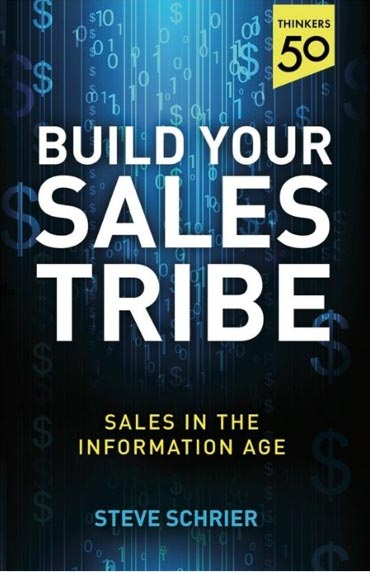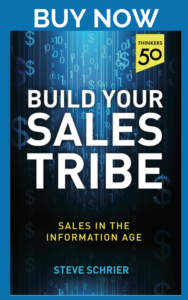
Empathy is a life skill and is being sought by organisations for senior roles across the board.
Empathy has been proven to be a key skill leaders need to succeed in modern times. It can be learned and developed like other skills. Some consider it a part of the ‘Emotional Intelligence‘ category, which forms a framework for operating at a senior level in the modern age.
Empathy for Sales People
But for sales and selling in the Information Age, we are interested specifically in a part of the ‘social intelligence’ characteristics in empathy. And only certain types of empathy at that, coupled with other important characteristics.
The problem with empathy is that there are least two types. Unless a person has the right blend of both. They may be more unlikely to be a ‘good’ sales person in the modern sense.
Cognitive Empathy
Cognitive empathy is understanding another persons perspective on a particular topic or situation. However, taken in isolation, having just this ability and not also the ability to understand the other person’s emotions along with it, can make for an exploitative situation. A situation most associated with a traditional ‘hard sell’ approach. So we don’t want just this in these times.
In other words, if a sales person is just uncovering enough through their questioning to find weaknesses. They can exploit a buyer-seller situation just enough to ‘push’ their product or service for their own gain. This may lead to some sales success, but it is unlikely to lead to positive longer term relationships for the supplier. Because, if a buyer or buying organisation feels exploited, they will often look to end the relationship as soon as they can.
Emotional Empathy
For sales which yield deals that last, for example for repeat business or recurring revenue payments so common in many contemporary business models. It is necessary for the sales person to also have ‘emotional empathy’.
This type of empathy means a person is in tune with the inner emotional world of customers, uncovering the deeper, professional ‘pain’ that a buyer, and the people around them, are experiencing. It also means they are looking for ways to make the buyers world better and help them succeed.
Typically, this can take the relationship longer to build but establishes a much broader relationship between the buying organisation and the selling organisation. In turn, this will lead to longer lasting relationships and better loyalty with customers.
People who are good only at emotional empathy can often get ‘burned out’. On top of that, carrying the emotional baggage they uncover by being excellent at the very thing makes them a good sales person.
Here we need to refer to the similarity between good sales people and good doctors. For example, good doctors and other medical professionals will often ‘shield’ themselves from their own emotional empathy. This in turn, is used to deliver results by developing a level of detachment from their encounters. This only really happens over time and with experience.
Practical Steps
How to test and recognise this with candidates good to employ for a business?
- This certainly comes through in a reference checking process. Talk to former customers who have dealt with the candidate. If they are still positive references today, this will typically be a good indicator.
- It is possible to test empathy. This can be part of a wider test of emotional intelligence through paid services, offered by the likes of Roche Martin for example. This obviously comes with a professional level of analysis and costs. https://www.rochemartin.com/emotional-capital-report-ecr-selection
- Greater Good offers a free test which you can get people to take on this page. It allows you to set up a free account for each person so you can log the scores and track them..
Get the candidate to perform this test as part of a face-to-face interview. Don’t explain any of the above to them. Also don’t have them do it at home or in a room that is unmonitored. It should be self-explanatory which ones of these relate to either cognitive empathy or emotional empathy. https://greatergood.berkeley.edu/quizzes/take_quiz/empathy - Here are 6 habits of highly empathetic people worth reading before interviewing someone to take a sales job. https://greatergood.berkeley.edu/article/item/six_habits_of_highly_empathic_people1
- Lastly, test a candidates ability to move on by discussing how they manage their customers. How many prospects they can manage at any one time. Also how they manage handing them over to others when the time is right.
Further Reading
You can read more about the topic of ‘Emotional Intelligence’ here (which may have many wider takeaways):
- Roche Martin is a leading company who operate in the space and have a lot of resources and case studies. They provide services too many organisations who are trying to find employees with Emotional Intelligence. Find out more here: https://www.rochemartin.com/how-it-works/
- The Greater Good Science Center (CGSC) at the University of California, Berkeley, is a non-profit organisation. Their aim is to: ‘explore the roots of happy and compassionate individuals, strong social bonds and altruistic behaviour – the science of a meaningful life.’ https://greatergood.berkeley.edu/about .
Books on Empathy:







